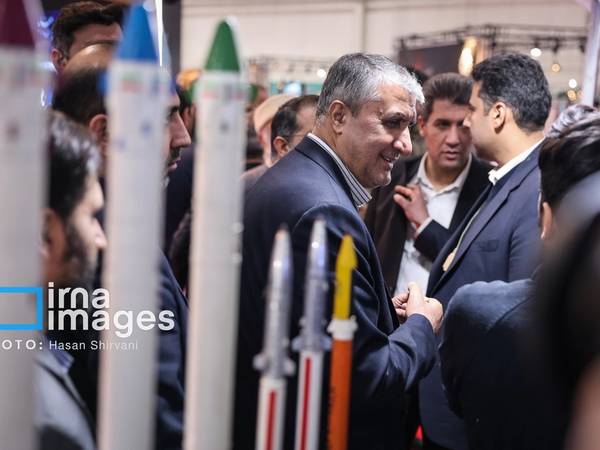Iran’s nuclear chief said on Tuesday that the country’s nuclear technology will not be restricted, despite demands from the United States and European powers to halt high-level uranium enrichment.
Mohammad Eslami, head of Iran’s Atomic Energy Organization, speaking in Isfahan (Esfahan), home to the Natanz nuclear facility, said: "We must continue on the path of progress with effort and perseverance, and Iran's nuclear technology will never be restricted."
The Islamic Republic began violating the enrichment limits set by the 2015 JCPOA nuclear agreement after the United States withdrew from the accord in 2018. Following President Joe Biden’s election, Tehran announced an increase in uranium enrichment to 20% purity, later escalating to 60%, a level widely regarded as just short of the threshold needed for producing fissile material suitable for nuclear weapons.
Subsequent negotiations with the US and the European E3 countries — the UK, France, and Germany — failed to resolve key differences, revive the JCPOA, or establish a new agreement. As a result, Iran is now believed to possess enough 60% enriched uranium to produce 4 to 5 atomic bombs, should it choose to pursue nuclear weapons.
"Science and technology are considered key factors in creating power and authority," Eslami added, in spite of Iran's pursuit of nuclear power contributing to its isolation on the world stage.
"A country can maintain its independence and progress only if it pursues its development without reliance on others, especially the dominant global powers," he said.
This strategy, mainly directed against the West, has inflicted major harm on Iran’s economy, which now suffers from 50% annual inflation and a currency that has fallen 11,000-fold in the past 45 years.
Widespread energy shortages have forced the government to close offices, factories and schools in many provinces this week, while the country holds the second largest natural gas reserves in the world.
Iran’s nuclear program has cost the country hundreds of billions of dollars in lost revenue and economic growth due to 15 years of international and US-imposed sanctions.
With Donald Trump set to assume the presidency in the US, Tehran faces his “maximum pressure” policy, which includes stricter enforcement of sanctions and potentially additional restrictions.
